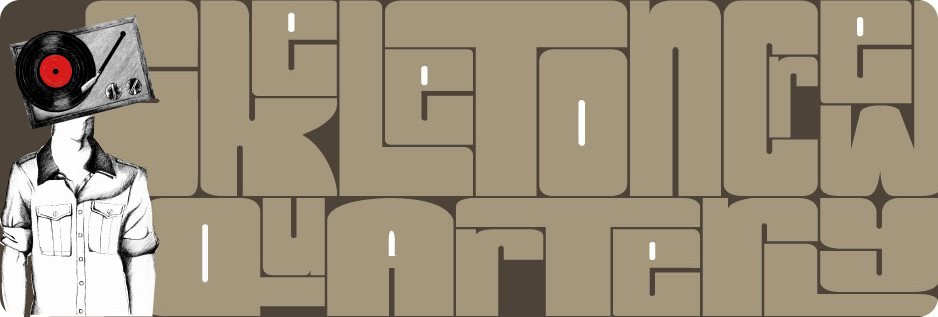
SMM: Context
Various Artists
Ghostly International.
SCQ Rating: 80%

The Reconstruction Of Fives
Various Artists
n5MD Records.
SCQ Rating: 77%
The complication with compilations: they’re usually built to be torn apart, offering one-off tracks to crudely represent entire genres, time periods, artists and/or labels. For those of us who pedestal music as art worthy of its own mini-universe – like, say, the album – compilations embody the commercial underbelly; a middle-man, so to speak, who takes the majority of cash we’d prefer to give directly to the artists responsible. Independent labels are included in my editorial “we”, not only because their passion for music as art runs deeper than most listeners, but because good labels never short-change their discography for cash-in-hand.
Two of Skeleton Crew Quarterly’s favourite electronic labels, Ghostly International and n5MD, released compilations this past winter; the former an exposé of Ghostly’s increasingly experimental efforts, the latter a celebration of n5MD’s ten-year anniversary. Both are terrific in that they deliver new and likeminded artists to investigate but, moreover, they are worlds unto themselves, sequenced to flow – and be listened to – as full-length albums.
SMM: Context finds an assortment of artists blurring the once-separate worlds of electronica, drone and classical into a gorgeously sweeping, futurist’s movement. From sunny passages like Goldmund’s ‘Motion’ and Christina Vantzou’s ’11 Generations Of My Father’ to solemn sound-environments like Manual’s ‘Three Parts’, the compilation embraces a variety of ambient shades to colour its moody tapestry. Evocative instrumentals that act as understated film scores (Jacaszek’s ‘Elegia’) interact with minimalist symphonies (Kyle Bobby Dunn’s ‘Runge’s Last Stand’) to create a lived-in sense of ebb and flow. Sure, its imaginary narrative freezes up on occasion courtesy of a few hard-edged drone pieces (by Aidan Baker and Svarte Greiner) but SMM: Context’s overview wouldn’t be complete without these darker entries.
Instead of exploring unclassifiable sonic territories as Ghostly International has done, The Reconstruction Of Fives embraces n5MD’s past by looking forward with a selection of classic tracks performed by the label’s colleagues. Much-loved acts like Miwon, Rafael Anton Irisarri (The Sight Below) and Pale Sketcher pay their respects alongside n5MD’s new class, reworking personal favourites to brilliant effect. Worriedaboutsatan serve up a post-classical version of ’63 (She Was Trying to Sleep…)’ that nearly trumps Plastik Joy’s original while Pale Sketcher’s ‘Secret Knots’ is particularly arresting, shifting from Broadrick’s foreboding M.O. to heart-achingly delicate. Although not as dreamy as Ghostly’s compilation, The Reconstruction Of Fives seeks a more defined presence and establishes new talents (such as Winterlight) as much as it rejoices existing achievements.
SMM: Context and The Reconstruction Of Fives aren’t interesting simply because they’re riding on their respective label’s coattails or because their approach to the compilation format feels fresh and valuable. Instead, I’m stricken by these releases because both summarize their catalogs by stepping timidly outside of them. Ghostly ultimately travels further, as was their intention, while n5MD reassesses their trademarked post-rock/electronica by largely reimagining previous accomplishments. As someone regularly opposed to dropping hard-earned cash on compilations, I heartily recommend picking up both of these label profiles.









